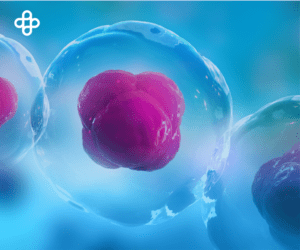Chronic asthma is a persistent inflammatory condition of the airways that affects millions globally, impairing quality of life through breathing difficulties, coughing, and wheezing. Despite advancements in conventional treatments, many patients still endure severe symptoms. In this context, regenerative medicine, mainly stem cell therapy, emerges as a promising therapeutic approach to improve lung function in chronic asthma patients.
What Is Chronic Asthma and How Does It Impact the Respiratory System?
Chronic asthma is marked by inflammation and narrowing of the airways, causing breathing challenges and other respiratory symptoms. Over time, this inflammation can lead to airway remodeling, reducing flexibility and increased susceptibility to obstruction. This process gradually diminishes lung function, making it harder for patients to lead everyday lives. While current treatments like bronchodilators and corticosteroids help manage symptoms, they do not repair the underlying lung tissue damage.
How Do Stem Cells Work in Regenerative Medicine?
Stem cells are pluripotent cells with the unique ability to differentiate into specialized cell types, including those of the respiratory system. In regenerative medicine, these cells hold the potential to repair and regenerate damaged tissues, providing a long-term solution for chronic diseases like asthma. Mesenchymal stem cells (MSCs) have been identified as critical players in lung tissue repair due to their anti-inflammatory properties and ability to promote cellular regeneration.

Recent Studies on Stem Cells for Asthma Treatment
Numerous studies have explored the potential of mesenchymal stem cells in treating chronic asthma. For instance, animal models have demonstrated that MSC administration significantly reduces airway inflammation and improves lung elasticity. Early-stage clinical trials in humans have shown encouraging results, including improved lung function and reduced asthma symptoms.
One groundbreaking study from 2020 revealed that patients with severe asthma treated with MSCs experienced substantial improvement in respiratory capacity and a decrease in asthma exacerbations. These findings highlight the potential of stem cell therapy as a viable option, particularly for patients unresponsive to conventional treatments.
Mechanisms Behind Lung Function Improvement
The primary mechanism stem cells benefit chronic asthma is modulating the immune system and reducing inflammation. Mesenchymal stem cells release anti-inflammatory factors that suppress excessive immune responses characteristic of asthma. Additionally, these cells repair damaged airway epithelium, contributing to enhanced lung elasticity and long-term functionality.
Another critical advantage of stem cells is their ability to prevent airway remodeling. A pathological process in chronic asthma that progressively impairs lung function. By inhibiting this remodeling, stem cells alleviate short-term symptoms and offer a solution to prevent long-term lung deterioration.
Conclusion: A Promising Future for Regenerative Medicine in Asthma
Regenerative medicine, mainly through mesenchymal stem cells, represents an exciting frontier in chronic asthma treatment. Preliminary clinical studies have shown significant improvements in lung function and patient quality of life. The future of asthma management may well be defined by the ability of stem cells to not only alleviate symptoms but also repair and regenerate damaged lung tissue.
Finally, consider exploring our article, “Stem Cell Therapy for Lung Diseases: A Breath of Fresh Air for Respiratory Health”, for additional insights.





